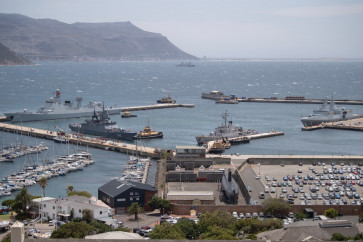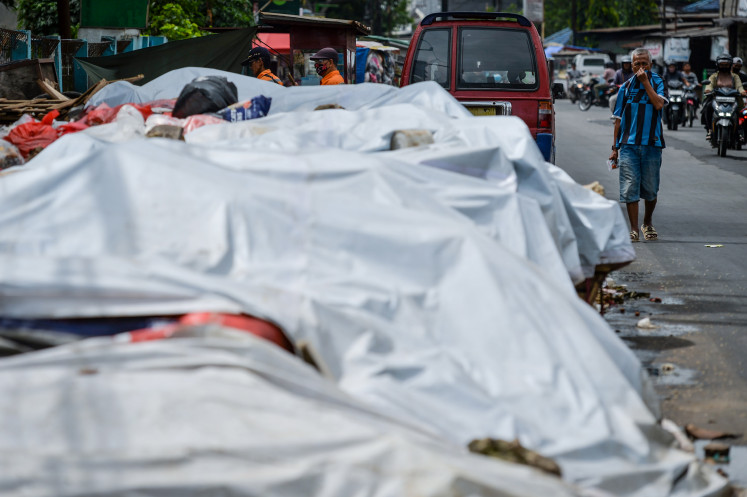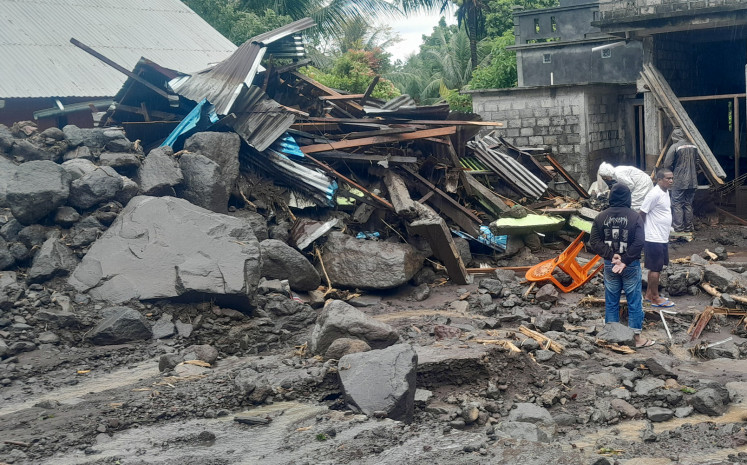Popular Reads
Top Results
Can't find what you're looking for?
View all search resultsPopular Reads
Top Results
Can't find what you're looking for?
View all search resultsState ideology Pancasila, how are you?
I would like to recall the words of Dr
Change text size
Gift Premium Articles
to Anyone
I
would like to recall the words of Dr. Saafroedin Bahar, who used to remind participants at seminars and panels that Indonesia would surely not exist if not for Pancasila, Indonesia’s state ideology, the principles of which are embedded in the preamble of the 1945 Constitution.
Initially, I believed what Dr. Saafroedin said was true. However, after some time I told the retired Army brigadier general, whom I respect because of his integrity and positive ideas, that his mantra might have been true 65 five years ago, but not now.
As Heraclitus said 25 centuries ago: Panta chorei kai ouden menei, everything flows and nothing stands still. Things and people are different now, and Indonesia is no exception. It is true that we still see Pancasila around us being symbolized in the Garuda coat of arms, hung high on the walls of public offices.
However, one now has sufficient reason to be concerned that the “Garuda Pancasila” has become mere symbolism. As Pancasila was brought to the edge of oblivion following the downfall of president Soeharto, some intellectuals play with the ideology as if it needs to be revitalized.
As a matter of fact, there is nothing wrong with Pancasila. When president Sukarno proposed the national doctrine on June 1, 1945, he conceptualized a set of ideals that would become the basic concept for an Indonesia that was about to be established. In Daniel Lev’s words: “Sukarno built a nation out of nothing,” and Pancasila proved to become an ideological compromise among the diverse Indonesian leaders in its early years.
Indonesia is still diverse now and Pancasila does not need revitalization or whatsoever in the resembling direction. What is needed is revitalization of the goodwill of the Indonesian leaders and elites, because their morals today have little in common with the morals of Indonesian leaders in the country’s early years.
The preamble of the 1945 Constitution cites what is commonly accepted as the formulation of Pancasila, and its closing words read: “The realization of social justice for all the people of Indonesia”.
Yet that is exactly what has been neglected throughout the Republic’s 65-year history.
No wonder then, that in a culture that easily forgets but refuses to forgive Pancasila risks becoming a “failed ideology”, it’s because Indonesia’s leadership has made it that way. As seen by the rebellions and armed conflicts that dot its history, Indonesia is time and again prone to conflict.
The riots in Tanjung Priok in the northern outskirts of the country’s capital city in mid April 2010 should remind us of how easy we resort to violence. Some intellectuals and politicians refute that Pancasila needs revitalization, which is a fallacy purely because Pancasila has been left behind for the sake of narrow, primordial, short-term interests.
The failure to be true to Pancasila protracts and evolves with radicalization among frustrated and angry elements of the people. It is true that some of them become involved in terrorism, while many others vent their anger and frustration in riots and commotions from time to time.
Maya Safira Muchtar referred to Sadanand Dhume, who wrote in his book My Friend and the Fanatic “of the growth of radicalism in Indonesia and it being a threat to the state ideology Pancasila, the 1945 Constitution and the Unitary State of the Republic of Indonesia” (The Jakarta Post, Feb. 3, 2010). The troublesome question is: Why does radicalism grow? Why do certain people become radical and haunt others with terror? We condemn radicalism and terror, but we seldom ask why it has become a part of our life.
The former president of Ireland wrote: “Armed conflicts cannot be understood without reference to such root causes as poverty, political repression, and uneven distribution of resources.
The insecurity of millions of people continues to stem from worry about where the next meal will come from, how to acquire medicine for a dying child… the comprehensive insecurity of the powerless.” (Mary Robinson: Connecting Human Rights, Human Development, and Human Security, 2005). In other words, at the end of the day, Pancasila is about the realization of “social justice for all the people of Indonesia,” the goal that we have failed to achieve to date.
President Susilo Bambang Yudhoyono is now running the country for a second term. Let’s say that he needed to complete his first term to stabilize the country after the long turbulent years following the Reformasi of 1998. His success in his first term is indicated by the relatively strong rupiah despite the scandals of Bank Century, police corruption, tax office corruption and other squabbles.
Yudhoyono should now capitalize on his second term by guiding and mobilizing the Indonesian people toward the realization of the fifth principle of Pancasila, the need of which we all now subcutaneously feel. Failure in this respect will indeed render Pancasila irrelevant for Indonesia sooner or later.
In a way, Yudhoyono may consider following the “Obama path” by bringing in welfare, healthcare and educational reforms to the effect that the majority of Indonesians realize they would be on the receiving end of the even distribution of the country’s vast resources.
It is a big job indeed, however, we have squandered a lot of time through history. Sixty-five years after the establishment of a republic endowed with abundant natural resources, most Indonesians still face grief in attending to their daily needs, healthcare and education of their children.
That is a shameful and unacceptable situation. With that in mind, wondering why we have radicals and terrorists among us is an absurd delusion.
The writer is a professor at the School of Philosophy, Parahyangan Catholic University, Bandung.










